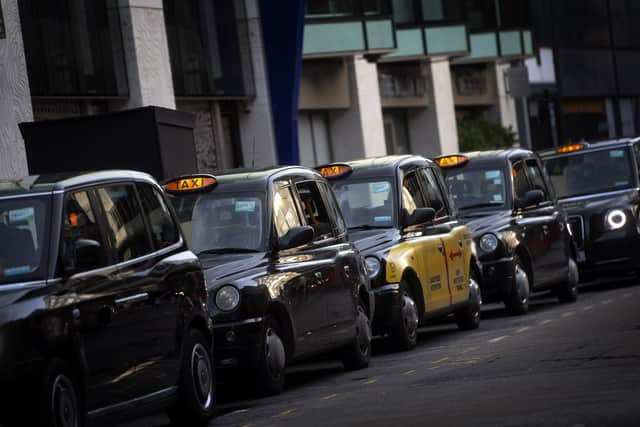Seven in 10 Sheffield taxis cannot be used by wheelchair users
and live on Freeview channel 276
Department for Transport figures show 2,411 vehicles were licensed to operate in Sheffield at the end of March – but just 649 (27 per cent) could be used by those in wheelchairs.
Of the 648 traditional taxis which can be hailed from the street, all were wheelchair accessible.
Advertisement
Hide AdAdvertisement
Hide AdBut just one of the city's 1,763 private hire vehicles, which need to be pre-booked, offered the same service.


Across England, just two per cent of private hire vehicles can fit a wheelchair.
Scope said four-fifths of disabled people feel anxious on public transport – exacerbated by the coronavirus pandemic – leaving many reliant on taxis and private hire cars.
Tom Marsland, policy manager for consumer affairs at Scope, said: “When these aren't accessible disabled people are robbed of their independence.
Advertisement
Hide AdAdvertisement
Hide Ad“Consistent regulation and enforcement across all transport authorities in England and Wales would help hold drivers and taxi organisations accountable for their accessibility, and improve disabled people's trust in the system.”
Mr Marsland said the recent Paralympic Games sent a powerful message to the world, but warned all disabled people still face daily inequality on public transport.
The DfT figures also show that the majority of local authorities across England and Wales do not require disability awareness training for taxi or private hire drivers.
But in Sheffield, both taxi and private hire drivers have to do this training.
Advertisement
Hide AdAdvertisement
Hide AdThe National Private Hire and Taxi Association said wheelchair accessible vehicles are expensive to buy and run, and their higher emissions are worse for the environment.
Board member Steven Toy, said: “With the increase in the number of journeys being taken by peer-to-peer apps, there are fewer journeys by hackney carriage.
“That itself dissuades people from investing in a vehicle when they see their trade falling on the whole.”
He added for every WAV request, there are likely to be 10 or more for a low vehicle – favoured by older people who struggle to get into higher vehicles – so all disabilities should be taken into consideration.
Advertisement
Hide AdAdvertisement
Hide AdA DfT spokeswoman said: “Our National Disability Strategy will drive forward new laws to ensure disabled people get the right help in taxis and private hire vehicles.”
Local journalism holds the powerful to account and gives people a voice. Please take out a digital subscription or buy a paper. Thank you. Nancy Fielder, editor
Comment Guidelines
National World encourages reader discussion on our stories. User feedback, insights and back-and-forth exchanges add a rich layer of context to reporting. Please review our Community Guidelines before commenting.